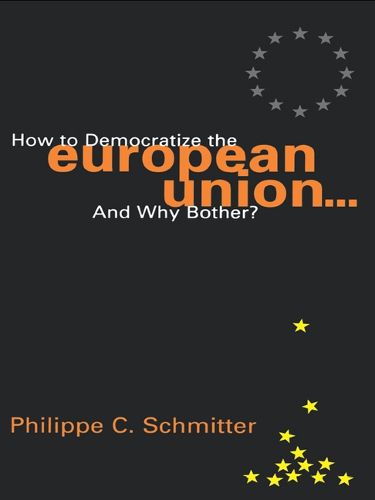Readings Newsletter
Become a Readings Member to make your shopping experience even easier.
Sign in or sign up for free!
You’re not far away from qualifying for FREE standard shipping within Australia
You’ve qualified for FREE standard shipping within Australia
The cart is loading…






The European Union has most of the institutions of a modern democracy, yet it does not function as one. Moreover, its growing scope of activity and supranational decision making processes are undermining the legitimacy of democracy in its member states. Much has been written about this double democratic deficit , but surprisingly little thought has been given to what to do about it - short of drafting and ratifying a new federal constitution. In this book, the author explores both the possibility and the desirability of democratising the EU. He argues that as a non-state and a non-nation it will have to invent new forms of citizenship, representation, and decision-making if it is ever to democratise itself. He also contends that the timing and political context work against a full-scale constitutionalisation of the process. He proposes a number of modest (and some less modest) reforms that could improve the situation in the near future and eventually lead to a genuine Euro-democracy.
$9.00 standard shipping within Australia
FREE standard shipping within Australia for orders over $100.00
Express & International shipping calculated at checkout
The European Union has most of the institutions of a modern democracy, yet it does not function as one. Moreover, its growing scope of activity and supranational decision making processes are undermining the legitimacy of democracy in its member states. Much has been written about this double democratic deficit , but surprisingly little thought has been given to what to do about it - short of drafting and ratifying a new federal constitution. In this book, the author explores both the possibility and the desirability of democratising the EU. He argues that as a non-state and a non-nation it will have to invent new forms of citizenship, representation, and decision-making if it is ever to democratise itself. He also contends that the timing and political context work against a full-scale constitutionalisation of the process. He proposes a number of modest (and some less modest) reforms that could improve the situation in the near future and eventually lead to a genuine Euro-democracy.